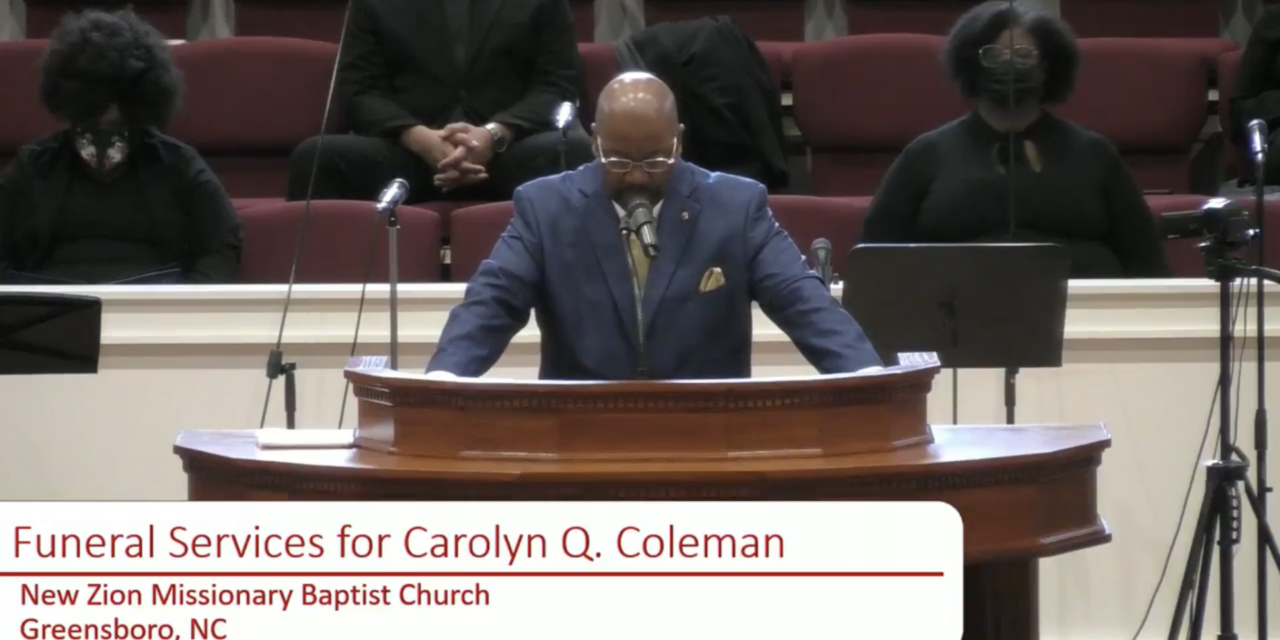In a Wednesday, Feb. 3 funeral service limited to 200 people due to the COVID-19 pandemic, former Guilford County Commissioner Carolyn Coleman, who had died one week earlier, was celebrated at New Zion Missionary Baptist Church in Greensboro.
If not for the pandemic, there’s no question the church would have been packed to the rafters given the number of lives she touched – but the limited number of attendees didn’t make the ceremony any less meaningful.
Coleman, who lived in Pleasant Garden and served on the Guilford County Board of Commissioners for 20 years, made many friends in that capacity as well as through her extensive work with the NAACP and other community organizations.
Though there were only 200 people in the church, many more watched the afternoon service via livestream. The speakers – including friends, church leaders, NACCP leaders and Chairman of the Guilford County Board of Commissioners Skip Alston – spoke with great passion at the emotionally-charged gathering that left many in tears.
Sen. Gladys Robinson (D-Guilford), a longtime friend and colleague of Coleman, spoke of Coleman’s fight for justice throughout her life and spoke of her intense dedication as a public servant.
Robinson said that Coleman’s message to everyone was: “We have an obligation to see that history is not lived again.”
An impassioned Alston also spoke at the service and he came close to tears many times. He expressed his tremendous gratitude for being part of Coleman’s life, and he called “my friend, my mentor.” He also spoke of all the doors she opened for him with the NAACP organization during the 1980s.
He said the two frequently had “late night conversations and early morning conversations.”
“If in the end, we didn’t agree,” he added, “she would say ‘Mr. Alston, you be you and I’ll be me.”
Alston also offered a profuse series of thanks to Coleman.
“Thank you for all you did for this community!” he said.
At the service, Alston read a resolution honoring Coleman. The resolution was set to be adopted at a Guilford County Board of Commissioners meeting that evening.
“We love you; we miss you, but we will never ever forget you,” Alston concluded.
The ceremony also contained uplifting music and many fond tales of Coleman’s life, such as the times she was arrested at protests while fighting to advance civil rights.

